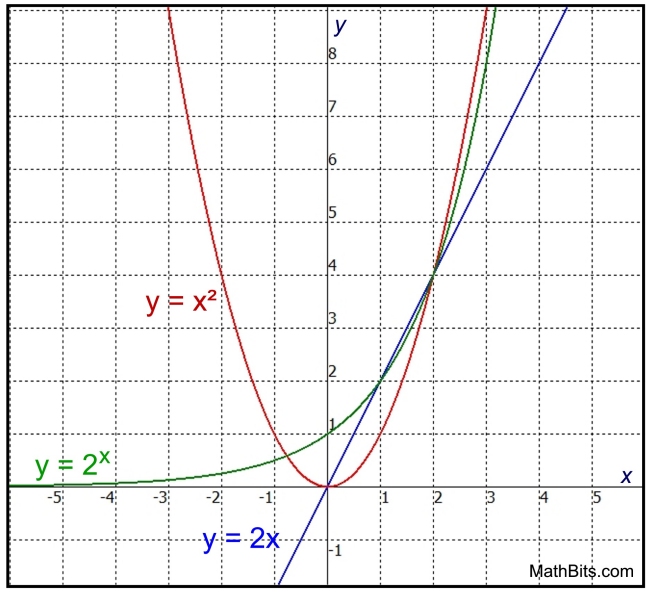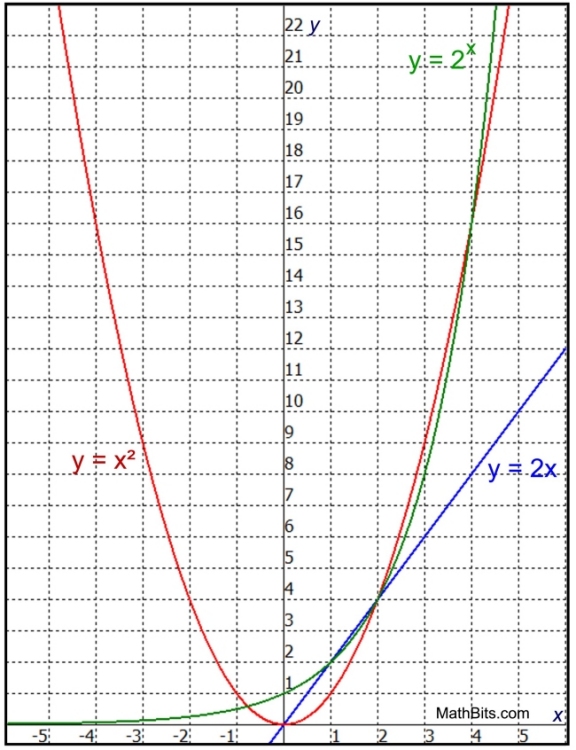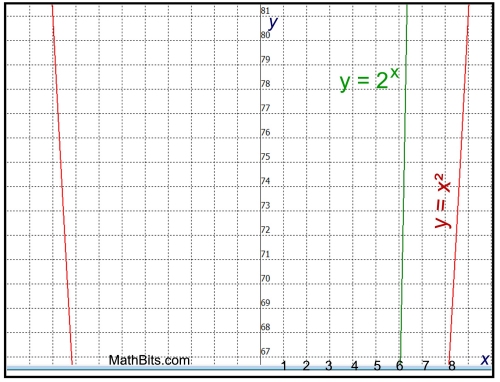| A quantity increasing exponentially eventually exceeds a quantity increasing linearly or quadratically. |
Let's compare a linear function, a quadratic function, and an exponential function
to see how quickly they grow over time.
| Quadratic: y = x2 Linear: y = 2x Exponential: y = 2x |
Start at the origin, where all 3 functions begin increasing.
• At the origin (0,0), the exponential (y = 1) exceeds the others (both y = 0).
• But, from x = 1 to x = 2, the linear exceeds the exponential and the quadratic.
• Then at x = 2, the quadratic exceeds the exponential and the linear.
So at this point, in this graph from x = 2 to x = 3, it appears that the quadratic
may be taking the lead as the function exceeding the other two functions.
Quadratic: y = x2 Linear: y = 2x Exponential: y = 2x
But, let's take a look at the bigger picture with a
bigger view of the y-axis.
• As we saw above, the quadratic did take the lead as the exceeding function,
but that lead only lasted from x = 2 to x = 4.
• At x = 4, the exponential function equals the quadratic function.
But, after x = 4, the exponential takes the lead.
• The exponential will hold the "lead" position from here on.
A larger graph window could be used to further verify this result.
But we know that the exponential function's average rate of change gets larger
very quickly as the x-values increase making the graph even more steep.
Still doubting?? I think we can agree that the linear function is out of the running.
Let's check a larger point for the other two functions to see what's happening.
Quadratic: At x = 20, y = x² = 20² = 400
Exponential: At x = 20, y = 2x = 220 =1,048,576
Yep, the exponential is going to hold the lead.
Quadratic: y = x2 Linear: y = 2x Exponential: y = 2x

The amazing speed with which an increasing exponential function grows
overpowers the other functions.

Here is a larger view of the y-axis showing that the exponential is
increasing at a rapid rate, pulling away from the quadratic.

NOTE: The re-posting of materials (in part or whole) from this site to the Internet
is copyright violation
and is not considered "fair use" for educators. Please read the "Terms of Use". |
|



